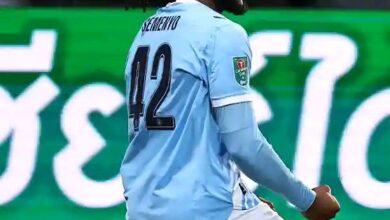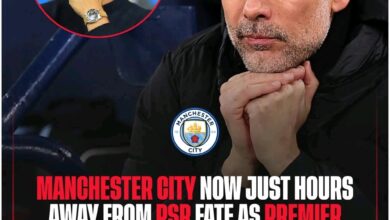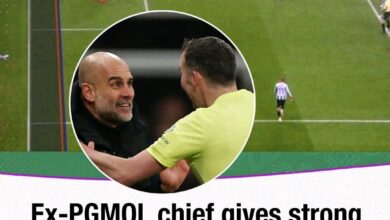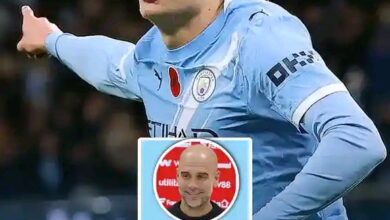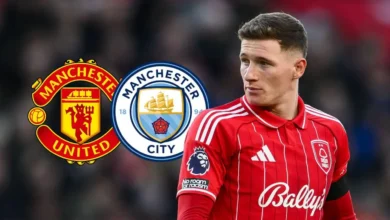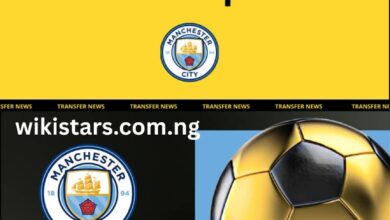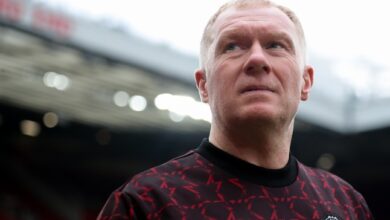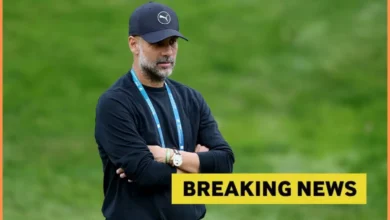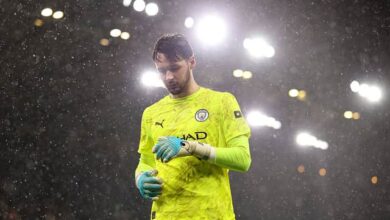Pep Guardiola’s Squad Revolution: Manchester City’s Accelerated Player Exodus
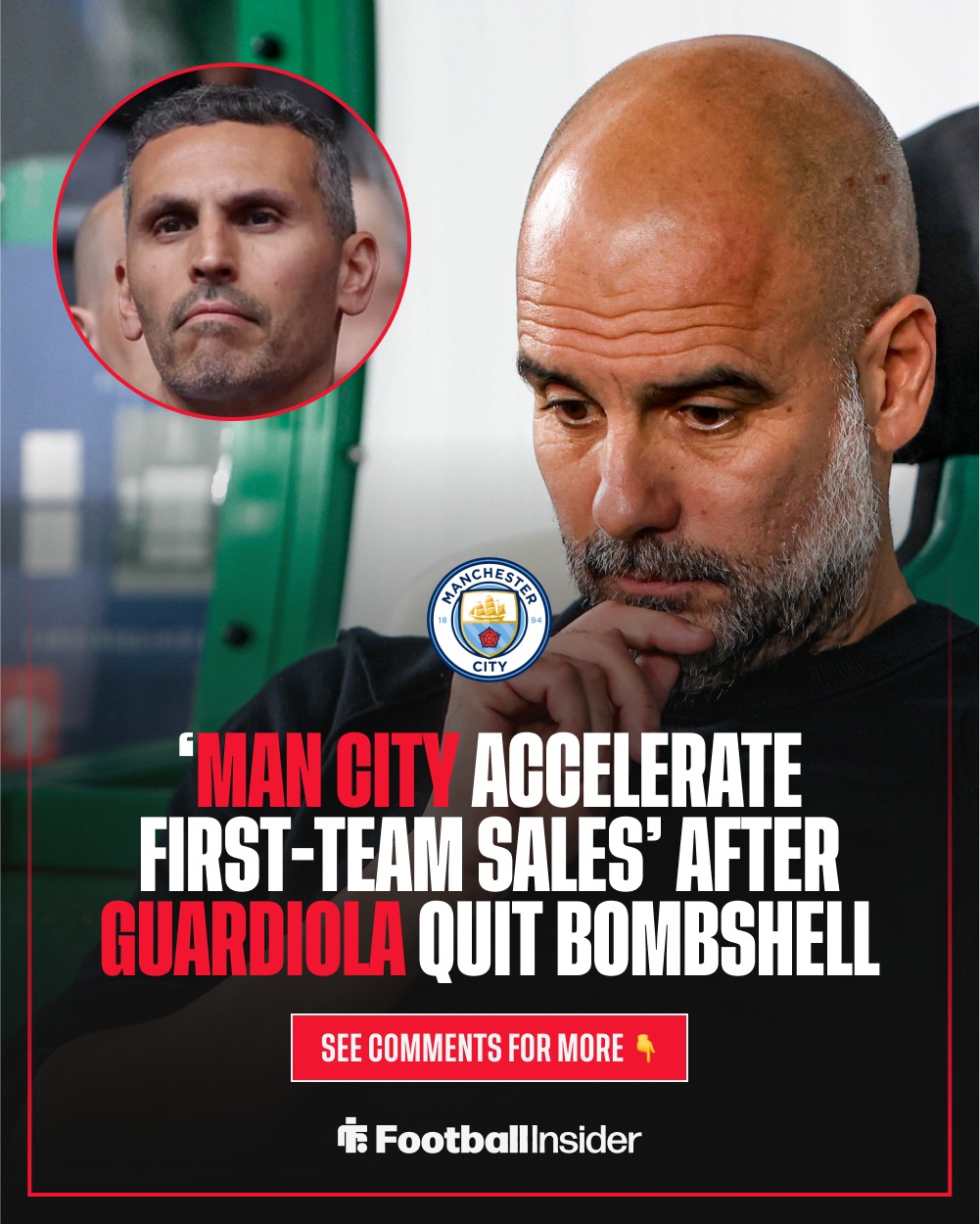
The 2024/25 season proved to be a watershed moment for Manchester City, serving as a stark reminder that sustained success in football requires constant evolution and adaptation. The club’s third-place finish in the Premier League, combined with their defeat in the FA Cup final against Crystal Palace, marked their first trophy-less domestic campaign in several years under Guardiola’s stewardship.
This underwhelming performance, by Manchester City’s elevated standards, exposed fundamental issues within the squad structure that had been masked by previous successes. The over-reliance on certain key players, particularly evident during Rodri’s extended absence, highlighted the squad’s lack of genuine depth in crucial positions. Paradoxically, while City possessed numerical depth across most areas of the pitch, they lacked the tactical flexibility and seamless integration that Guardiola demands.
The Club World Cup campaign that followed provided Guardiola with an opportunity to experiment with different combinations and assess the true capabilities of his extended squad. The experience clearly reinforced his belief that a smaller, more cohesive group would better serve his tactical ambitions than a larger squad of varying commitment levels and playing opportunities.
The tournament also served as a practical demonstration of Guardiola’s selection preferences, with numerous first-team players excluded from the squad entirely. This public omission sent a clear message about the manager’s priorities and foreshadowed the exodus that would follow his return to England.
The Philosophy Behind the Purge
Guardiola’s insistence on squad reduction stems from a deeply held belief about team dynamics and player psychology that has been refined throughout his managerial career. His experience at Barcelona, Bayern Munich, and Manchester City has consistently demonstrated that maintaining squad harmony requires every player to have a realistic opportunity for regular involvement.
“It’s impossible for my soul to give [leave] my players in the tribune, that they cannot play,” Guardiola explained, revealing the emotional and ethical dimensions of his squad management philosophy. This statement goes beyond tactical considerations to encompass the human element of football management – the responsibility a coach feels toward every individual under their guidance.
The psychological impact of squad exclusion extends far beyond the immediate disappointment experienced by unused players. Frustrated squad members can become sources of dressing room discord, potentially undermining team cohesion and creating negative atmospheres that affect overall performance. By maintaining a leaner squad, Guardiola aims to ensure that every player remains motivated and engaged, contributing to a more positive and competitive training environment.
This philosophy also reflects Guardiola’s understanding of modern football’s physical and mental demands. Today’s players require consistent involvement to maintain peak performance levels, both physically and mentally. Extended periods of inactivity can lead to decreased fitness, reduced confidence, and ultimately, diminished performance when opportunities finally arise.
The Acceleration Strategy: Timing and Execution
The revelation from former Manchester United and Blackburn chief scout Mick Brown that City are “set to accelerate first-team player sales” indicates a coordinated and urgent approach to squad restructuring. Brown’s extensive connections within the football industry and his decade-long experience at Manchester United during their most successful period lend significant credibility to his insights.
The timeline for these sales – completion before the start of the Premier League season – adds pressure to an already complex process. Transfer negotiations typically require careful deliberation and extensive planning, but City’s compressed timeline demands efficient execution and potentially significant financial compromises to achieve Guardiola’s objectives.
The acceleration strategy also reflects the club’s recognition that delaying these decisions could undermine their competitive preparations for the upcoming season. Players who are uncertain about their futures cannot fully commit to pre-season training and tactical preparations, potentially hampering the team’s readiness for competitive fixtures.
Furthermore, completing sales before the season begins allows City to reinvest any proceeds from departures into targeted acquisitions that better fit Guardiola’s vision. The transfer market’s dynamics often favor clubs that can act decisively and complete business early, providing better access to preferred targets before rival clubs enter negotiations.
The Exodus List: High-Profile Departures
The identification of Jack Grealish, Kalvin Phillips, and James McAtee as potential leaders of the exodus from the Etihad represents a significant statement about City’s shifting priorities and tactical requirements. Each of these players represents a different aspect of the squad restructuring challenge facing Guardiola and the club’s hierarchy.
Jack Grealish: The £100 Million Dilemma
Jack Grealish’s potential departure represents perhaps the most significant and symbolically important element of City’s squad overhaul. The England international’s arrival in 2021 for a British record fee of £100 million was heralded as a statement of intent, marking City’s commitment to acquiring the Premier League’s most exciting attacking talent.
However, Grealish’s integration into Guardiola’s system has proven more challenging than initially anticipated. While possessing undeniable technical ability and creative flair, his natural playing style has not always aligned with the specific tactical demands of Guardiola’s possession-based approach. The winger’s tendency toward individual expression and risk-taking, while valuable assets in certain contexts, can conflict with the systematic and disciplined approach that Guardiola demands.
Grealish’s situation illustrates the broader challenge of adapting individual talent to collective tactical requirements. His struggles to secure regular starting opportunities despite his obvious abilities highlight the specificity of Guardiola’s system and the manager’s unwillingness to compromise his tactical vision to accommodate players who don’t fit seamlessly into his preferred approach.
The financial implications of Grealish’s departure would be substantial, both in terms of the potential transfer fee and the significant wages that would be removed from the club’s salary structure. However, Guardiola’s ultimatum suggests that tactical considerations now outweigh financial concerns in City’s decision-making process.
Kalvin Phillips: The Midfield Conundrum
Kalvin Phillips’ inclusion in the potential departure list represents a more straightforward case of tactical misalignment and failed adaptation. The England international’s arrival from Leeds United was intended to provide depth and competition in the defensive midfield position, particularly given the importance of this role in Guardiola’s system.
However, Phillips has struggled to demonstrate the technical consistency and tactical intelligence required to thrive in City’s possession-heavy approach. His performances have often appeared rushed and uncertain, suggesting a fundamental disconnect between his natural playing style and the demands of Guardiola’s tactical framework.
The midfielder’s limited playing time since joining City has created a cycle of declining confidence and reduced match sharpness, making it increasingly difficult for him to demonstrate his capabilities when opportunities arise. This situation exemplifies the challenge facing players who cannot immediately adapt to Guardiola’s methods – without regular playing time, improvement becomes increasingly difficult, but without improvement, regular playing time remains elusive.
Phillips’ departure would likely be met with understanding from all parties, providing him with an opportunity to rebuild his career elsewhere while allowing City to invest in a player better suited to their tactical requirements.
James McAtee: Academy Talent at a Crossroads
James McAtee’s potential departure represents a different aspect of City’s squad restructuring challenge – the management of academy talent within a first-team environment. The young attacking midfielder has shown considerable promise throughout his development within City’s youth system, but his path to regular first-team involvement has been complicated by the club’s wealth of attacking options.
McAtee’s situation reflects the broader challenge facing modern football academies – developing talented players within systems that offer limited opportunities for progression to first-team football. While his technical abilities and understanding of City’s playing style make him a valuable asset, the competitive environment at elite clubs often necessitates difficult decisions about young players’ futures.
The decision to potentially sell McAtee, rather than loan him for further development, suggests that City have concluded his long-term prospects within their first-team setup are limited. This assessment may be influenced by the specific tactical requirements of Guardiola’s system or the presence of other academy players who are considered more likely to make successful transitions to senior football.
Academy Clear-Out: The Next Generation Decision
The revelation that Guardiola is prepared to sell academy players including Issa Kabore, Callum Doyle, and Luke Mbete indicates that the squad reduction extends beyond first-team considerations to encompass the entire player development structure. This decision represents a significant shift in City’s approach to academy management and long-term planning.
Issa Kabore: The Full-Back Dilemma
Issa Kabore’s potential departure reflects the challenging pathway facing young defenders in Guardiola’s system. The Burkina Faso international has shown promise during loan spells and limited first-team appearances, but his development has been hindered by the specific tactical demands that Guardiola places on his full-backs.
Modern full-backs in Guardiola’s system must possess exceptional technical ability, tactical intelligence, and the versatility to contribute effectively in both defensive and attacking phases. They must also demonstrate the mental strength to perform consistently under the intense pressure that comes with playing for Manchester City. Kabore’s assessment suggests that he may not possess all of these attributes to the required level.
The decision to sell rather than continue his development through loan arrangements indicates that City have concluded his long-term prospects within their system are limited. This assessment may be influenced by the emergence of other academy prospects or the club’s plans to recruit externally for these positions.
Callum Doyle: Defensive Potential Reassessed
Callum Doyle’s inclusion in the potential departure list represents a significant decision regarding one of City’s most promising young defenders. The center-back has gained valuable experience through loan spells in the Championship and has been regarded as a potential future first-team regular.
However, Guardiola’s assessment of Doyle’s prospects appears to have shifted, possibly influenced by the specific tactical requirements of his defensive system or the emergence of other academy prospects who better fit his long-term vision. The decision to potentially sell Doyle, rather than continue his development, suggests that City have concluded his pathway to first-team football is unlikely to materialize.
This decision also reflects the broader challenge facing young defenders in modern football – the increasing complexity of tactical systems and the specific skill sets required to succeed at the elite level. Doyle’s potential departure may provide him with better opportunities to develop his career elsewhere while allowing City to focus resources on players with clearer pathways to first-team involvement.
Luke Mbete: The Versatility Question
Luke Mbete’s potential departure represents another example of the difficult decisions facing academy graduates in elite football environments. The young defender has shown versatility and commitment throughout his development within City’s system, but his prospects for regular first-team involvement appear limited.
Mbete’s situation reflects the broader challenge of developing young players who possess solid technical and physical attributes but may lack the exceptional qualities required to excel in Guardiola’s demanding tactical system. His potential sale suggests that City have concluded his development would be better served elsewhere, in an environment that can provide regular playing opportunities and continued growth.
The Financial Implications: Balancing Books and Ambitions
The accelerated player sales program will have significant financial implications for Manchester City, both in terms of immediate revenue generation and long-term squad investment planning. The club’s ability to generate substantial transfer fees from high-profile departures will provide crucial funding for targeted acquisitions that better align with Guardiola’s tactical vision.
The financial impact extends beyond simple transfer fees to encompass wage savings, agent fees, and the broader cost structure associated with maintaining a large squad. By reducing squad size, City can potentially redirect resources toward higher-quality acquisitions or improved contract terms for retained players.
However, the compressed timeline for these sales may limit City’s negotiating power and potentially reduce the transfer fees they can command. Clubs aware of City’s urgency to complete sales may adopt more aggressive negotiating positions, potentially costing the club significant revenue.
The Financial Fair Play implications of these transactions will also require careful management, particularly given the substantial fees involved in some potential departures. City’s compliance with financial regulations depends partly on their ability to generate revenue from player sales while managing expenditure on new acquisitions.
The Recruitment Challenge: Quality Over Quantity
The success of Guardiola’s squad reduction strategy will ultimately depend on City’s ability to identify and acquire players who can immediately contribute to their tactical system. The emphasis on quality over quantity means that every new signing must possess not only technical ability but also the mental attributes required to thrive in Guardiola’s demanding environment.
The reduced squad size will place greater pressure on each individual player, requiring exceptional physical conditioning, mental resilience, and tactical intelligence. New acquisitions must be capable of adapting quickly to Guardiola’s methods while maintaining peak performance levels throughout extended periods of regular involvement.
The recruitment process will also need to consider the specific tactical requirements of each position within Guardiola’s system. Generic talented players may not suffice; City must identify individuals whose skill sets align precisely with the demands of their intended roles within the tactical framework.
The Psychological Impact: Team Dynamics and Morale
The mass exodus of players will inevitably impact team dynamics and morale within the Manchester City squad. Remaining players will face increased pressure and responsibility, knowing that squad depth has been deliberately reduced in favor of tactical cohesion.
The psychological benefits of Guardiola’s approach – increased playing opportunities, clearer role definition, and enhanced team unity – must be balanced against the potential negative effects of reduced competition for places and increased pressure on individual players. The success of this strategy will depend largely on the remaining players’ ability to adapt to these new circumstances.
The integration of new signings into this environment will require careful management, particularly given the reduced time available for gradual adaptation. New players must quickly understand not only the tactical requirements but also the cultural expectations of a squad operating under Guardiola’s demanding standards.
The Tactical Evolution: System Refinement
The squad reduction provides Guardiola with an opportunity to refine his tactical system based on the specific attributes of his remaining players. Rather than adapting his approach to accommodate players who don’t naturally fit his preferred style, he can now develop tactics that maximize the strengths of a more carefully selected group.
This tactical evolution may involve subtle adjustments to formations, pressing patterns, and positional rotations that better utilize the specific skills of retained players. The reduced squad size will also allow for more intensive tactical preparation, with every player fully understanding their role within the system.
The emphasis on tactical cohesion over individual brilliance may also influence City’s style of play, potentially leading to more systematic and predictable patterns that rely less on individual inspiration and more on collective execution.
The Competitive Implications: Risk and Reward
Guardiola’s squad reduction strategy represents a calculated risk that could either enhance City’s competitive position or expose them to new vulnerabilities. The potential benefits include improved tactical cohesion, enhanced team unity, and more efficient resource allocation toward higher-quality players.
However, the risks are equally significant. A reduced squad increases the potential impact of injuries, suspensions, and fatigue, particularly during congested fixture periods. The lack of depth could also limit City’s ability to rotate players and maintain peak performance levels throughout multiple competitions.
The success of this strategy will likely depend on careful fitness management, tactical flexibility, and the ability of remaining players to perform consistently at the highest level. Any significant injury crisis could expose the limitations of Guardiola’s approach and potentially compromise City’s competitive ambitions.
The Long-Term Vision: Building for the Future
Beyond the immediate tactical and competitive considerations, Guardiola’s squad reduction strategy reflects a longer-term vision for Manchester City’s development. By establishing clear standards for squad inclusion and demonstrating his willingness to make difficult decisions, he is creating a culture that prioritizes merit and tactical alignment over reputation and financial investment.
This approach may also influence City’s future recruitment strategy, encouraging more targeted and specific acquisitions rather than opportunistic signings based on availability or reputation. The emphasis on tactical fit and






